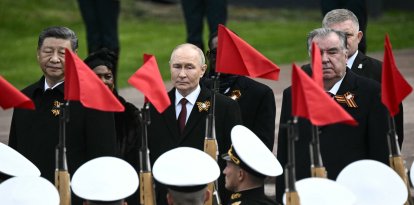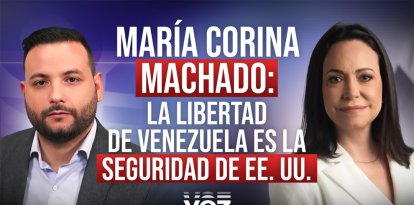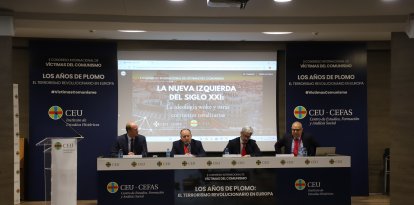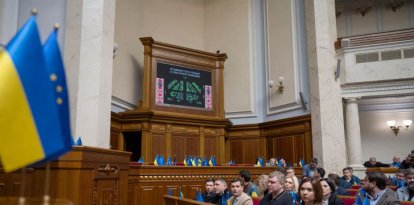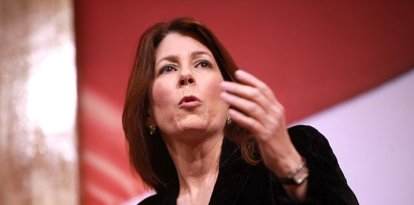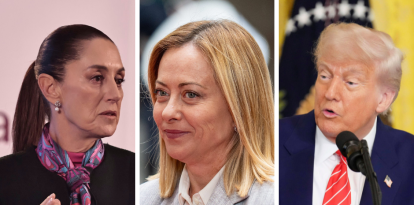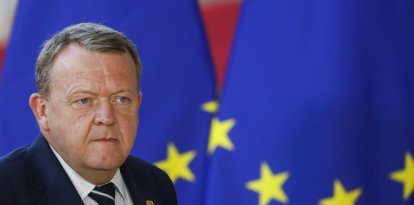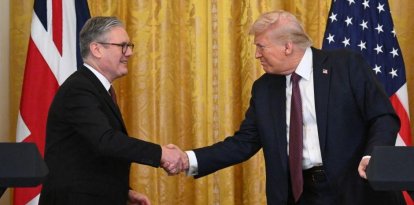From the Vatican, Pope Francis' "controversial" legacy in the Catholic Church: interview on Voz News
Edgar Beltrán spoke with Karina Yapor about the death of the first non-European pope and analyzed the profile of his successor.
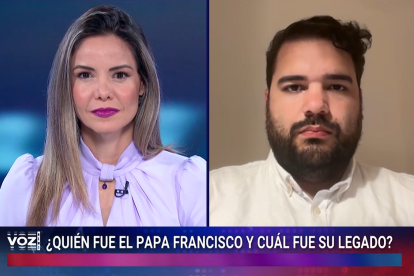
Karina Yapor talks with Edgar Beltrán.
Within hours of the passing of Pope Francis, Karina Yapor conversed on Voz News with Edgar Beltrán, Vatican correspondent for The Pillar, who analyzed the legacy of Jorge Mario Bergoglio and his impact on the Catholic Church.
Despite the delicate state of the supreme pontiff, Beltran said that the news of his death came as a surprise, given that he had been seen celebrating Easter and even receiving the vice president of the United States, JD Vance.
On Francis' papacy, which began in March 2013, the correspondent from The Pillar assured that it was a "very controversial" one, remarking that it defied the nature of his stay at the Vatican. While many expected him to be a transitional figure, he ended up being a very consequential figure for the Church.
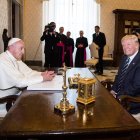
Politics
In honor of Pope Francis, Trump orders American flags to fly at half-staff
Carlos Dominguez
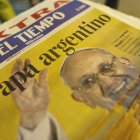
"Certainly he was a person who had some instincts that things had to change in the Church, with respect to the abuse crisis, with respect to how theology and pastoral practice were viewed in the Church. And above all also, for example, with the issue of financial reform in the Church (...) Sometimes these reforms in themselves were quite controversial within the Church, such as the issue of giving access to the sacraments to divorced and remarried people and the blessing of homosexual couples, which received much controversy within the Church precisely because they clash a little with Catholic theology," said Beltran.
In addition, he mentioned Bergoglio as a "great defender of peace and human rights," although noting that he sometimes lacked the strength to speak about certain regimes, such as those in Cuba, Venezuela, or Nicaragua.
On his successor, the correspondent hinted at the possibility of a pope far from the ideological extremes and with a more centrist profile.
"Perhaps they are going to look for a pope a little less ideological, a pope a little less political, who perhaps will focus a little more on the internal reforms of the Vatican to reach a consensus. That is to say, we are probably going to have now, I dare not say names, but a papacy that will be elected by consensus of the council of cardinals. That is to say, someone who is not so much on the extremes and reduces a little the polarization that exists today in the church," added Beltrán.
The complete interview with Edgar Beltrán
RECOMMENDATION
